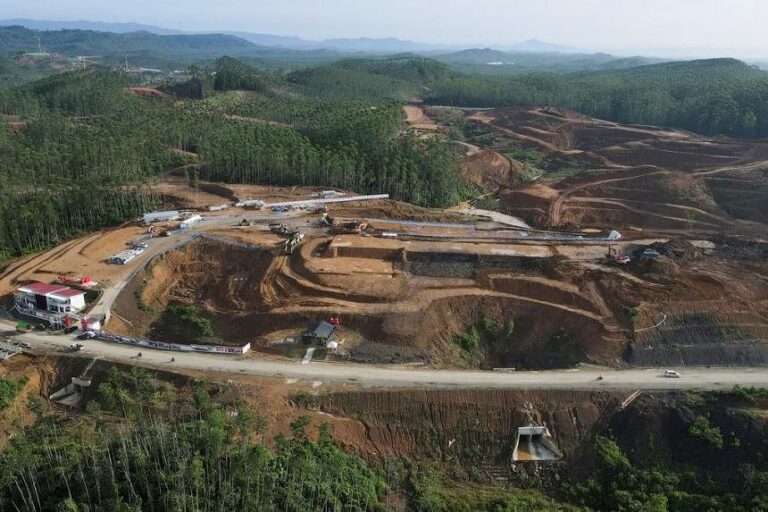JAKARTA – State events planned for Indonesia’s new capital, Nusantara, have been postponed or scaled back after construction deadlines were missed amid ongoing efforts to attract investors to the mega-project.
Construction of Nusantara’s US$35 billion (S$47 billion) will not be halted but its pace is likely to be adjusted, experts told The Straits Times, raising questions about when the new city will finally be able to replace Jakarta.
On July 15, Indonesian President Joko Widodo flew to the UAE to persuade investors to invest in the project, the latest in a series of presentation meetings with world and business leaders.
Indonesia has said the state will only cover 20 percent of Nusantara’s total cost, with the rest to be covered by the private sector.
The pitch came after President Jokowi announced on July 8 that the office relocation to Nusantara, originally scheduled for that month, would be postponed due to missed deadlines for some key infrastructure projects.
“Once the water is provided, the electricity is provided and the space is ready, we will move there,” Widodo said.
On July 16, he cited heavy rains as the cause of the delay. “It’s common in big projects,” he said.
Ceremonies planned to mark the 79th anniversary of Indonesia’s independence in Nusantara are set to go ahead as planned, albeit on a smaller scale.
Under the arrangements announced in June, President Joko Widodo and President-elect Prabowo Subianto would jointly preside over the ceremony in Nusantara, while Vice President Ma’ruf Amin and Vice President-elect Gibran Rakabuming Raka would preside over the ceremony in Jakarta.
“Some kind of ceremony is expected to be held in Nusantara on Aug 17, but President Widodo has already been forced to backtrack on earlier ambitious plans,” said Julia Lau, co-coordinator of the Indonesian Studies programme at Singapore’s ISEAS (Yusof Ishak Institute for Social Sciences).
“This is a clear recognition that Nusantara is not ready to host large-scale events.”
Poltak Partogi Nainggoran, a senior researcher at Indonesia’s National Research and Innovation Agency (BRIN), said the ceremony in Nusantara was likely to be a simple, symbolic act.
Nusantara leaders said the decision to mark the islands’ independence in two locations was to pay tribute to Jakarta and mark a “transition ceremony” to the new capital.
Original plans for the celebrations were much larger, with government officials saying in January that thousands of government employees would take part in a series of events.
Meanwhile, Prabowo and Gibran’s inauguration ceremony in October will be held at the Senayan Legislative Complex in Jakarta, rather than Nusantara as previously announced.
The project, which aims to transform more than 2,000 square kilometres of East Kalimantan – an area more than twice the size of Singapore – into a smart, green city over the next 30 years, is also being hampered by a series of other obstacles.
On June 3, President Widodo’s office announced it had accepted the resignations of Bambang Susantono, a former Asian Development Bank official who was heading the project, and his deputy Donny Rahadjoe, an architect and former property developer. They were replaced by Public Works and Housing Minister Basuki Hadimuljono and Deputy Agriculture and Spatial Planning Minister Raja Juli Antoni.
Officials say the new city will have running water and electricity by the end of July, but not all experts are convinced.
Some, such as Dr. Irman G. Ranti of Indonesia’s Padjadjaran University, say there have been significant development delays and it will take longer than originally planned for the city to become a fully functional new capital for the country. Officials have said Nusantara will take 20 to 30 years to complete.
“The recent heavy rains are merely an excuse for delay. The challenges of building a megacity in this region are much greater than the weather,” he said.
Critics have expressed concern about the site’s location in densely forested areas prone to flooding and other natural disasters, and that it is home to indigenous people who could be forced to relocate.


